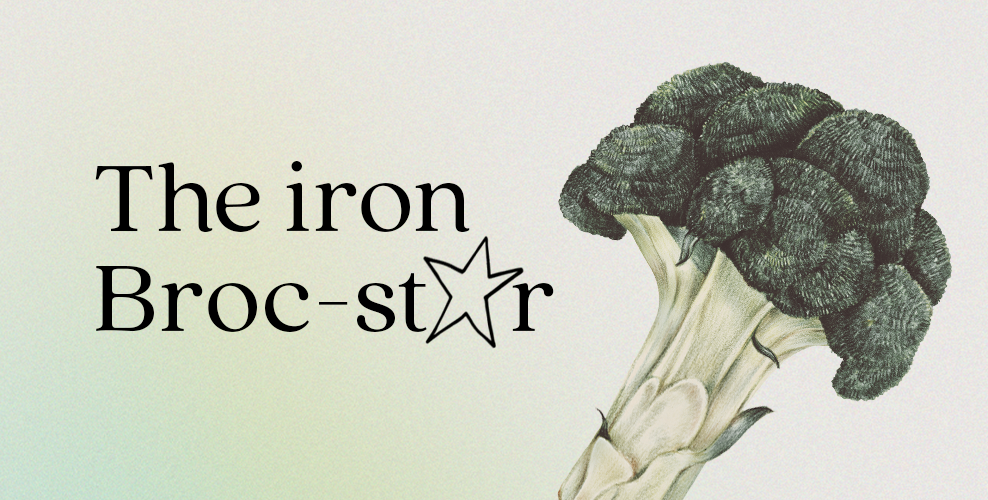Are you getting enough iron?

Blood and iron
We all know that blood is the fluid that circulates in vessels throughout the body, carrying oxygen and nutrients to all cells. It is made up of red blood cells (RBCs), white blood cells, platelets and plasma (the fluid portion of blood).
Red blood cells (RBCs) contain the important protein haemoglobin, which gives blood its red colour and has the function of carrying oxygen for transport to the cells of the body.1 Haemoglobin contains iron and is responsible for two-thirds of the body's iron stores.1
Iron and energy
Iron helps the body to produce healthy RBCs and haemoglobin.1
It's also vital for maintaining energy levels in the body.1
Are you getting enough iron?
Iron deficiency is the most common single nutrient deficiency worldwide.1,2 Some people need more iron than others, including women who are menstruating and vegetarians.1
Where to get more iron
There are many sources of iron you can include in your everyday diet, including:
- Red meat, poultry and fish
- Green leafy vegetables
- Broccoli
- Lentils and beans1
If you aren't getting enough iron from your diet, consider taking an iron supplement to prevent deficiency. However, there are many iron supplements to choose from and some are better quality than others.
Iron glycinate (also known as iron bisglycinate or iron (II) glycinate) is more readily absorbed than some other forms of iron such as iron sulfate. Iron glycinate is also gentle on the digestive system.

What helps iron absorption?
Aside from taking a readily absorbed form of iron such as iron glycinate, there are a few things you can do to make sure you get the most out of your iron-based meal or supplement:
- Include a source of vitamin C (such as broccoli, spinach or tomato) in your meal, to enhance the absorption of iron
- Avoid having tea and coffee at the same time as an iron-rich meal as they can inhibit iron absorption
- Soak and cook lentils and beans before cooking them to remove phytic acid, which inhibits iron absorption1
References
- Wessling-Resnick M. Oregon State University 2016. Viewed 26 Sep 2019, lpi.oregonstate.edu/mic/minerals/iron
- World Health Organization. Micronutrient deficiencies. Viewed 26 Sep 2019, who.int/nutrition/topics/ida/en/
Paul Keogh is the co-founder of Fusion Health.
















